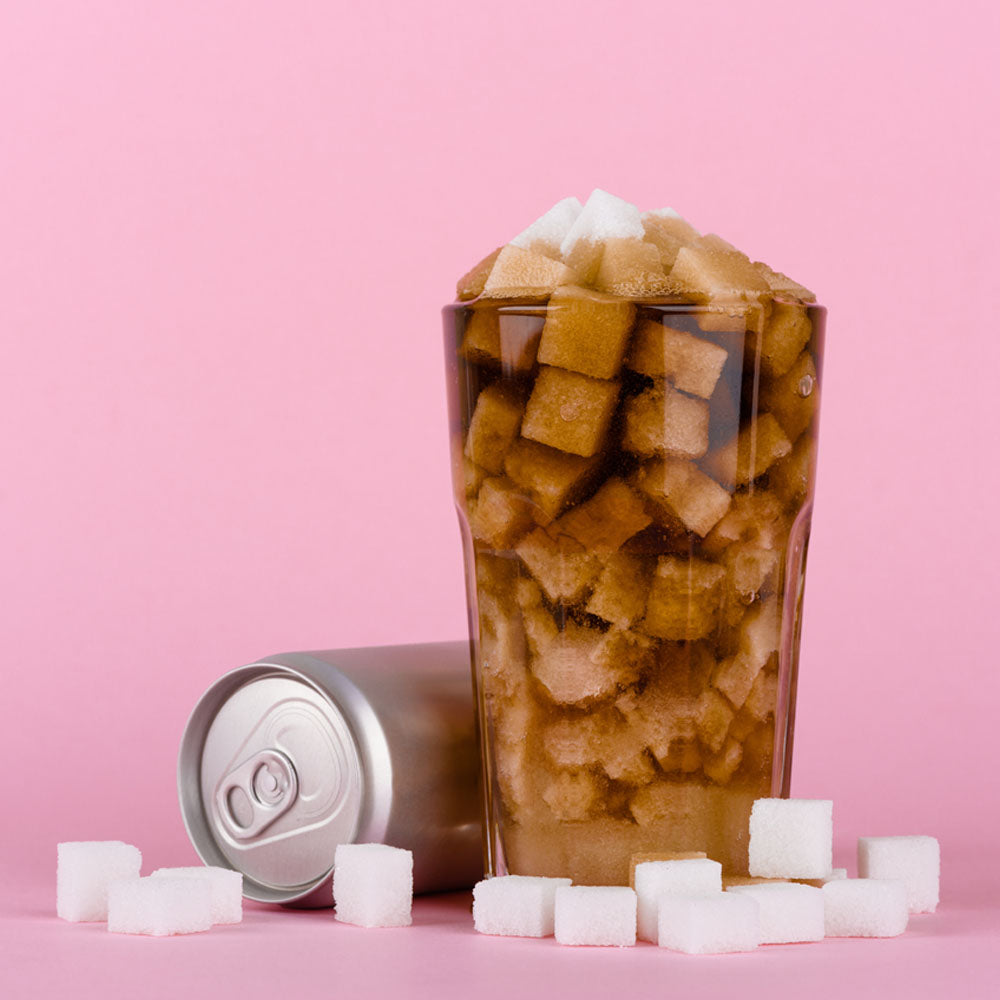
The Link Between Sugar and Hair Loss: What You Need to Know
Share

Are you concerned about hair loss? If so, you may want to think twice before reaching for that sugary drink. Hair loss affects millions of people worldwide and can be caused by a variety of factors, including genetics, age, stress, and certain medical conditions. However, new research suggests that the foods and drinks we consume may also play a role. In particular, excessive sugar intake has been linked to a higher risk of hair loss in men. In this article, we'll take a closer look at the link between sugar and hair loss, explore the latest research on the topic, and provide tips for reducing your sugar intake and protecting your hair health.
The Study
A recent study by researchers from Tsinghua University in Beijing found that men who consumed sugary drinks were more likely to experience hair loss. Those who drank more than one sweetened beverage per day were 42% more likely to experience hair loss. So, if you're concerned about losing your locks, it may be time to rethink your sugar intake.
Sugar and Blood Sugar Levels
One possible explanation for this is that sugar consumption can raise blood sugar levels, especially when consumed in the form of fast-absorbing sugary drinks like soda, without other nutrients to slow digestion. Over time, elevated blood sugar levels can lead to insulin resistance, a condition that can cause type 2 diabetes and metabolic syndrome. Interestingly, insulin resistance may also be linked to hair loss, according to some studies.
Other Factors Contributing to Hair Loss
While sugary drinks may contribute to hair loss, it’s important to point out that they are not the only factor. Genetics, age, stress, certain medical conditions, and diet can also contribute to hair loss. For instance, a history of anxiety or PTSD may be linked to a higher risk of hair loss. Eating a diet high in fried foods and low in vegetables has also been linked to hair loss. While some factors may be hard to control, others, like controlling your sugar intake, are easier to manage.
Tips for Reducing Your Sugar Intake
- Swap Sugary Drinks for Healthier Alternatives: Instead of reaching for sugary sodas and energy drinks (looking at you Monster & Redbull…), opt for zero-sugar options like Pureboost. You’ll still get a great flavor and nice energy boost, but without any sugar or artificial sweeteners.
- Read Labels and Avoid Hidden Sugars: Sugar can be hidden in many processed foods, so read labels carefully. Look for ingredients like high-fructose corn syrup, sucrose, and maltose, which are all types of added sugars that you should try to avoid.
- Choose Whole Foods: Fruits, vegetables, whole grains, and lean proteins are all naturally low in sugar and high in nutrients. Win/Win!
- Balance Your Meals and Snacks: If you do need to let your sweet tooth win every once in a while, try combining it with protein and fiber to help balance blood sugar levels and prevent insulin resistance. Aim to eat a balanced diet with plenty of protein, healthy fats, and fiber.
Conclusion
While more research is needed to fully understand the link between sugar and hair loss, there is growing evidence to suggest that excessive sugar consumption may contribute to this common problem. By reducing your sugar intake and focusing on a healthy, balanced diet with less sugary drinks, you can rest assured knowing you’re doing your part to maintain optimal hair health. And next time you’re craving a sweet, sugar-filled energy drink – reach for a Pureboost instead and enjoy all the flavor with none of the sugar.